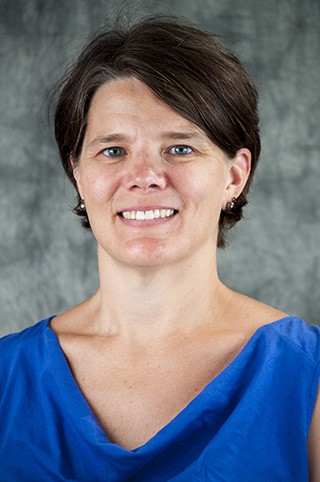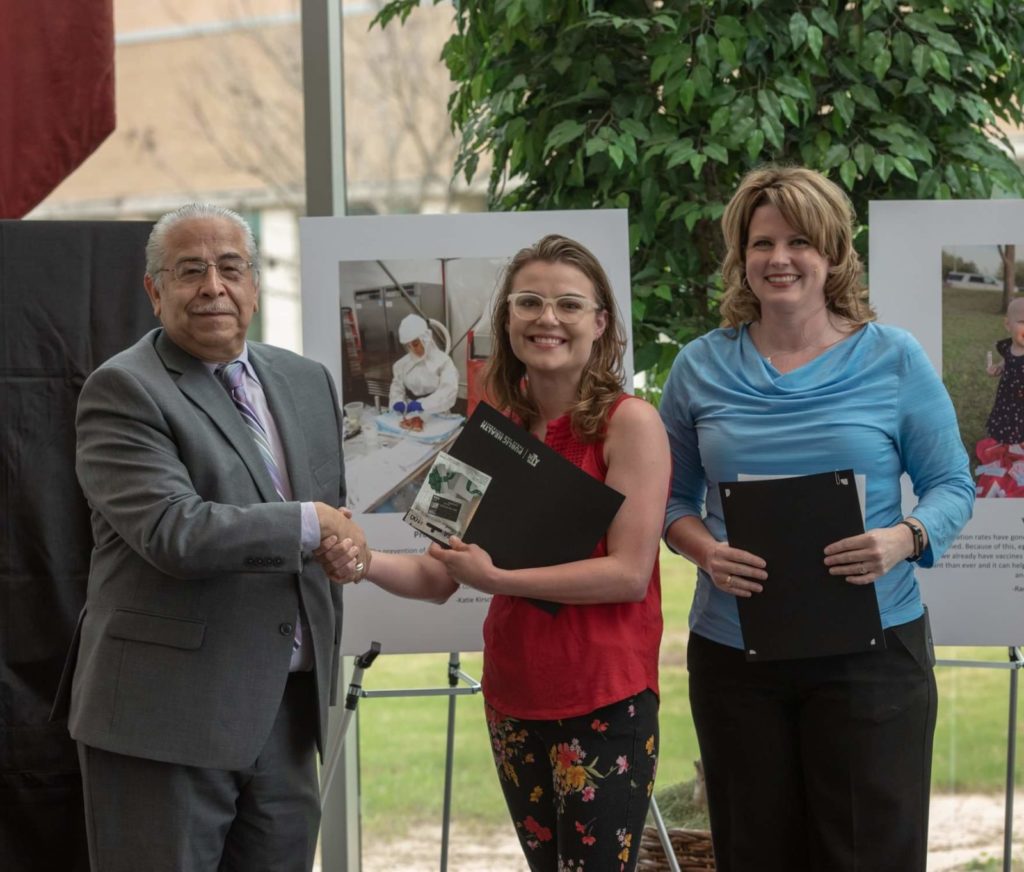Community Engagement
Faculty Career Advancement
TiCER strives to advance the careers of the participating faculty.

Faculty Spotlight
Jennifer Horney
Jennifer Horney is an associate professor of Epidemiology and Biostatistics in the School of Public Health. She is a rising star in the field of environmental health under the mentorship of Center director, Dr. David Threadgill.
2
Projects
10
Trainee Students
100
Papers
Career Development Opportunities

Career Mentoring
Career mentoring occurs on many levels at TiCER.
The Center partners with several university-wide programs run by the Dean of Faculties office (e.g., workshops on grant writing, work/life balance, conflict management, K-awards, and promotion and tenure) to provide access to established career development programs designed for postdocs transitioning to independence and for junior faculty advancing through the professorial ranks. The Center primarily focuses on mentoring in the area of environmental health research, leadership, and networking.
All junior faculty are given ample opportunity to engage with the Center-sponsored seminar speakers and will be tracked by the Program Committee to ensure they are actively engaged in all Center activities. Junior faculty joining he university will be encouraged to apply for Center membership. Center director Dr. David Threadgill will personally reach out to prospective members.
As part of the application, each potential new member at the Assistant Professor level will be required to identify a mentoring committee, which can be an extension of their departmental mentoring committee. However, the committee must have at least one senior Center member, who will be identified in consultation with the Center Director, as their primary environmental health mentor. The new member and their mentoring committee will develop an individual development plan to provide a clear path toward a sustainable environmental health research program, including a timeline to submission of a pilot project application. Additionally, all new members will be required to meet with the Center Associate Director to discuss avenues and opportunities for stakeholder engagement via the CEC.
In addition to structured mentoring programs, the facility cores provide additional matching support for junior Center members and have training embedded into their missions.
Engaging junior faculty with CEC and IHSFC functions is particularly emphasized. The CEC hosts an annual workshop on community engagement and the IHSFC sponsors annual translational research workshops to assist faculty in accessing capabilities to translate their work.
Funds will also be made available by the Administrative Core for junior faculty to participate in “mini-sabbaticals” at other institutions to obtain training in specific technologies or to develop new collaborations. Funding will support travel and subsistence for up to one month.
Pilot project awardees, irrespective or career stage, will have access to career mentoring programs.
Leadership Mentorship Program
The Leadership Mentorship Program is an innovative aspect of promoting career development at TiCER. The design of the Center is organized to embed leadership mentoring activities in key operations of the Center. Leadership training is rarely offered in most centers, which are largely dominated by senior members who provide oversight. Yet, for junior faculty to progress, having the opportunity to co-lead and receive mentoring-through-practice provides a unique opportunity to build skills not readily obtained by being a Center member.
Four components will be led by members paired with more junior colleagues. Center Director David Threadgill will mentor Associate Director Jennifer Horney, who is a rising star in environmental health research, while directing the Administrative Core. Similarly, Ivan Rusyn, an established investigator with extensive administrative expertise, will mentor Natalie Johnson within the context of the IHSFC. Horney, established in community engagement, will mentor Emily Rauscher and Galen Newman while leading the CEC. Arnold Vedlitz, an established investigator with extensive expertise in policy stakeholder engagement, will assist with mentoring in the CEC. Finally, Steven Safe, an international leader in environmental health research and director of a former NIEHS P30 Center at Texas A&M, will administer the PPP while mentoring Sakhila Banu, a promising young investigator whose research program is funded by an NEIHS R01 grant that emerged from a pilot project awarded under a previous multi-institutional P30 center.
Each mentee will co-lead the respective cores to gain “on-the-job” leadership training. These mentees are expected to progress into leadership roles in the Center and University.
Emeritus Academy (EA)
Another way the Center promotes career development is through an Emeritus Academy (EA). Members of the academy are recently retired senior investigators with highly successful and productive research careers, who are committed to assisting the Administrative Core with the mentorship of junior faculty.
The EA is dedicated to supporting the Center mentoring programs and currently has eight members, two of which are former NIEHS grantees, and one of which is a member of the National Academy of Sciences. The EA will be led by Dr. Loren Skow, formerly an investigator at NIEHS before moving to Texas A&M.
EA members will be partnered with junior Center members and assist them with research plans, advising on laboratory management and personnel issues, volunteering in the lab, making connections between the mentees and leaders in their fields, and providing any other general career mentorship that will assist with the successful career progression of junior Center members. The EA will also organize and run a mock grant review panel three times a year for all Center members who would like critical feedback on grant applications.
